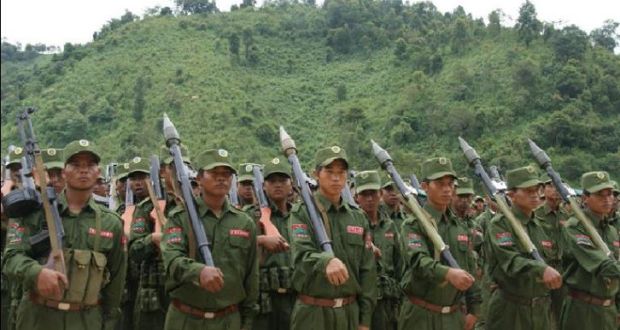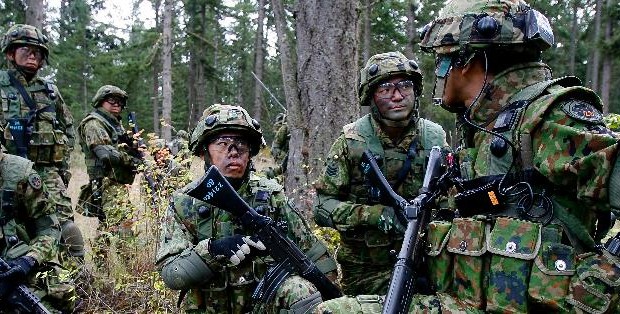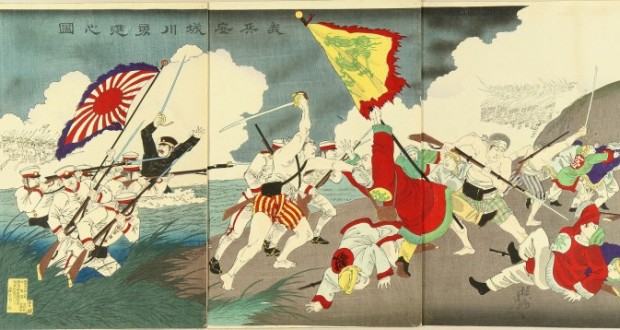It is disturbing to hear of news that the United Wa State Army, an ethnic militia and former separatist group operating in Myanmar, may have acquired some fairly sophisticated ballistic missile technology, like those used to shoot down flight MH-17. According to Burmese intelligence officials late last year, there was evidence of the UWSA constructing a “radar and missile base” in the region around Tanyang, in the Shan state, supported by a Chinese company. It is not clear what kind of missiles the base is meant to be housing, though they have been described as “long-distance”, a conclusion which is supported by the kind of infrastructure being constructed.
Read More »Asia and Pacific
Violence Against Women: A Response to Narendra Modi’s Independence Day Speech
Delhi, 15th August 2014, Narendra Modi addressed the nation in his first Independence Day speech as Indian Prime Minister. The ramparts of the iconic Red Fort provided a familiar setting. However, the content of Mr Modi’s speech broke from tradition. Notable was his impassioned plea for a shift in attitude on the issue of violence against women – an issue that, by his reckoning, still brings shame to India
Read More »Opportunity and Risk in Japan’s military normalisation
Last week, the Japanese cabinet undertook a significant shift in their country’s defence policy, by agreeing to reinterpret the constitutional limits on the use of force in a less strict manner. The new understanding of the restrictions of Article 9 now allow for Japanese “collective self-defense” as well as military intervention to protect its treaty allies.
Read More »When old and new Empires collide: The historical roots of the Sino-Japanese Island Dispute
In 1405 A.D. the legendary Admiral Zheng He set the sails of his mighty armada for the first time. Over the following decades he went on seven journeys for the Emperors of the Ming dynasty. With up to 300 vessels and 30,000 men he came as far as Burma and India. China was the dominant naval power in the world – until Emperor Zhengtong had the entire fleet burnt down.
Read More »China’s Third Plenum Reform Agenda: Highs And Lows
This article deals with the premises that ought to be considered when analysing developments in China. It then goes on to suggest why one ought not to be disappointed, but be cautiously optimistic of the reforms laid out in the Third Plenum concluded on 12th November 2013.
Read More »Brunei brings harsh Reality of Sharia law to Southeast Asia
On 22nd October 2013, Sultan Hassanal Bolkah announced that Sharia Law would be implemented in Brunei in phases across six months.
Read More »India’s Exclusion from Permanent Membership: The Strongest Case for UN Security Council Reform?
Over the past week, Lithuania, Nigeria, Chile, Chad and Saudi Arabia were elected unopposed to five non-permanent member seats in the UN Security Council. Only a few hours later, Saudi Arabia, though hardly a state celebrated for its human rights record, rejected its seat
Read More »A Soldier in a Child
I was to interview three individuals (names have been changed for this article) – Nicole, the NGO’s director, James and Jamal (both support staff of TRIPOD) – the last of whom was to take the spotlight of the interview.
Read More »2014 Election Proves Critical for Indonesia’s Developing Democracy
The big watchword for the upcoming Indonesian legislative and presidential elections in 2014 is golput. Golput, which has its history in the New Order regime, is perhaps best understood as a form of protest vote against the current political establishment. It tends to take the form of low voter turnout or intentional non-marking of the ballot to invalidate it.
Read More »Trying to Make Sense of Pakistan
Many filed Pakistan under 'basket case' years ago and stopped trying to rationalise developments in that country. Sadly, for others, that isn't an option. What is taking place is tragic, absurd, and frightening.
Read More » Human Security Centre Human Rights and International Security Research
Human Security Centre Human Rights and International Security Research







